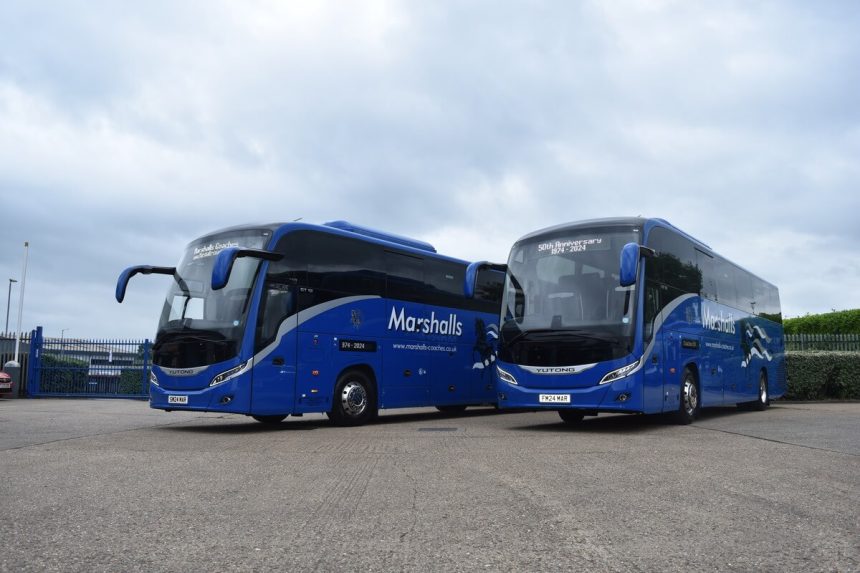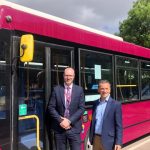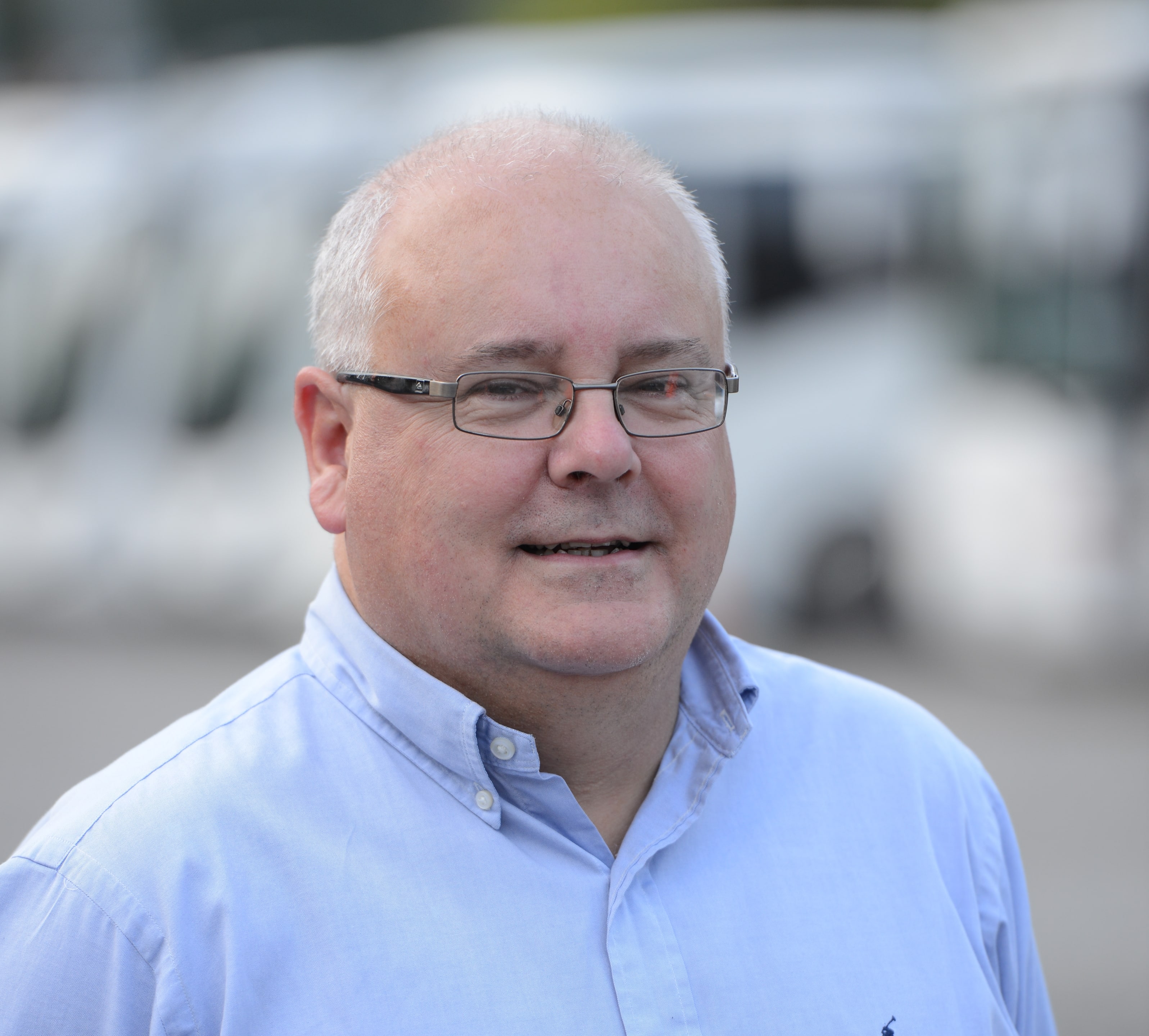As if getting married and setting up in business as a coach operator weren’t stressful enough in themselves, Fred and Sheila Marshall decided to do both within a week of each other in 1974. Proving that tackling the biggest challenges makes you stronger, Marshalls Coaches has come through a series of obstacles and is doing possibly better than ever 50 years on.
With sons Glen and Dean having now taken over at the helm, in June, the family celebrated the double anniversary as the business also marked the arrival of a pair of new Yutong GT12 coaches at its Leighton Buzzard depot.
Tough beginnings
While enjoying an anniversary cake sculpted as a Marshalls coach, Fred and Sheila recounted the business reaching the half-century after coming through the 1970s economic crisis, opposition from the local coach syndicate, Fred suffering life-threatening burns in the depot, the danger of closure due to two tour companies going bankrupt, and the COVID-19 pandemic.
Fred had wanted to set up a coaching business for a while, but finding finance for his first vehicle was the first obstacle. Sheila explains that Fred, who had worked as a panel-beater, did not even have a bank account when the idea was set into motion.
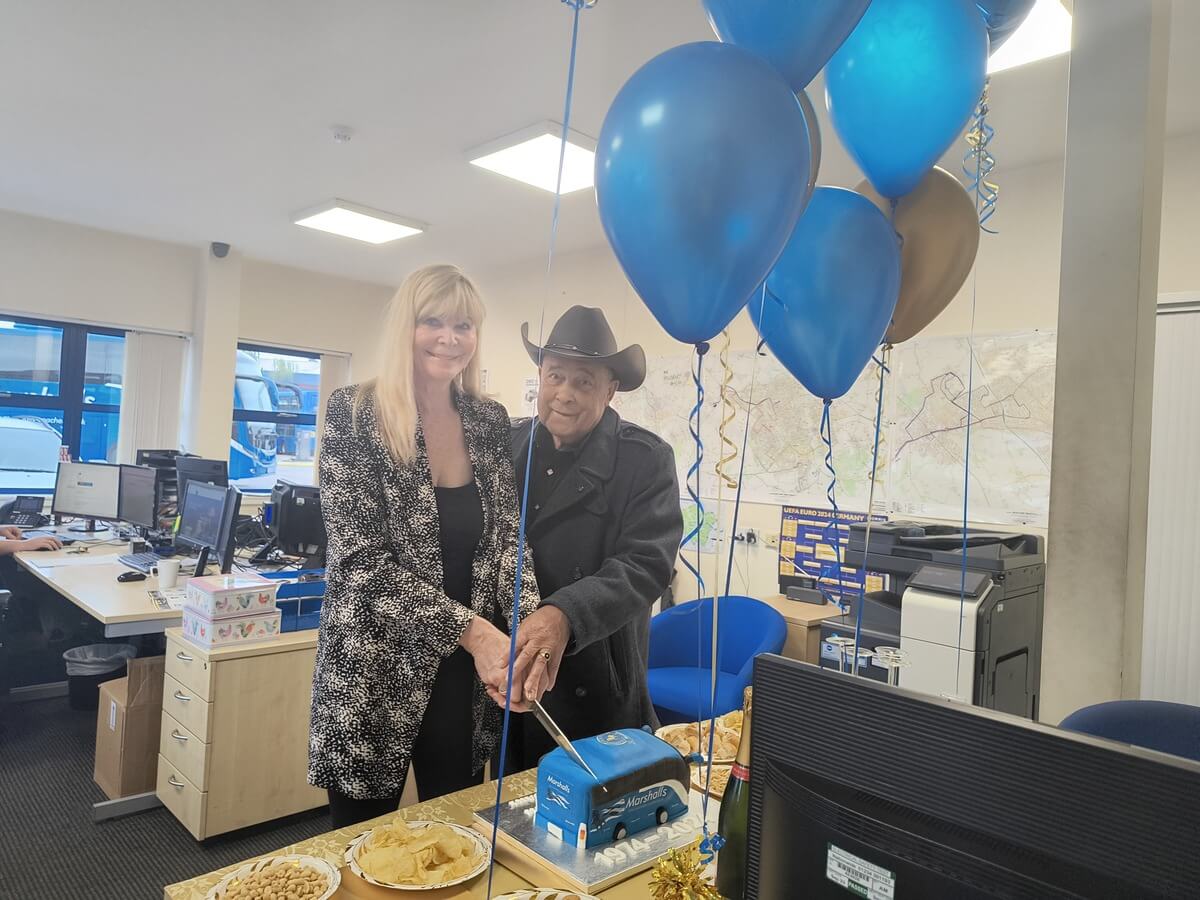
Starting up just a few days after the wedding may not have been ideal, but Fred had his first school contract lined up.
“I didn’t think I was going to get the contract, but I won it and then I had no choice really,” he says.
Finding work in the early days, especially in the middle of the 1970s recession, wasn’t easy. Sheila, who still works for the business in handling the accounts, says: “I used to spend a lot of time just writing to different social clubs and all the schools I could find in the Yellow Pages.
“That and word of mouth was how we started to get work coming in. It was quite hard work.”
Growth and setbacks
Nevertheless, work picked up and Marshalls moved to new premises in North Street in the town centre to accommodate a growing fleet. “It was just one of those things that, all of a sudden, everything went right,” says Fred.
As things became busier, Fred settled into the typical coach operator lifestyle of working night and day.
He says: “When it came to holidays, I used to drop them off in Norfolk and said I’d either see them in two weeks’ time or I’d try and get down. But, of course, I’d end up not joining them.”
However, tragedy hit the family and the business in 1981 when Fred sustained major burns in a workshop accident. Someone had borrowed Marshalls’ pit, spilt petrol and not cleaned it out well enough.
Fred recalls: “I got the acetylene torch out and I was cutting off the U-bolt and it just exploded. I was lucky I didn’t die. It burned the pigment out of my skin.”
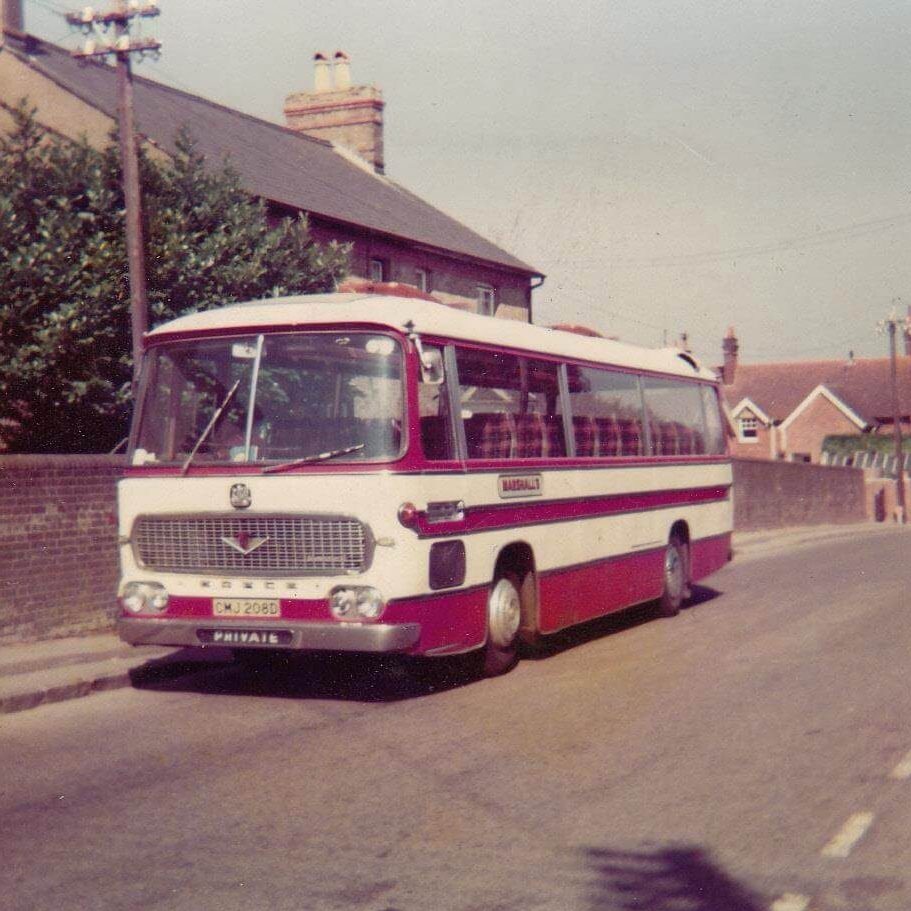
Marshalls earned well in 1986-87 from the infamously violent Wapping dispute, transporting workers across the picket line amid a barrage of stones being hurled at the coaches.
“I had never seen people act like it in my life, but I loved it, so I used to go and do it,” says Fred.
One of the biggest blows came in the mid-1990s when two tour companies they did work for went bust on them. It nearly ended the business.
“I sold all the vehicles I had and bought contract vehicles to keep us going,” explains Fred, who recalls his ongoing battle with the syndicate raised its head again.
“Then I took all the contracts off everybody and my name was mud. It was a syndicate still and they would never use me. People were stuck and used to ring me, but they were in the syndicate and that used to cause lots of problems.
“I said, ‘I don’t care about you (the syndicate), I’m looking after myself’, because I’d had lots of companies go bankrupt on me and I had lots of problems where I could have gone bust, but we just kept at it.”
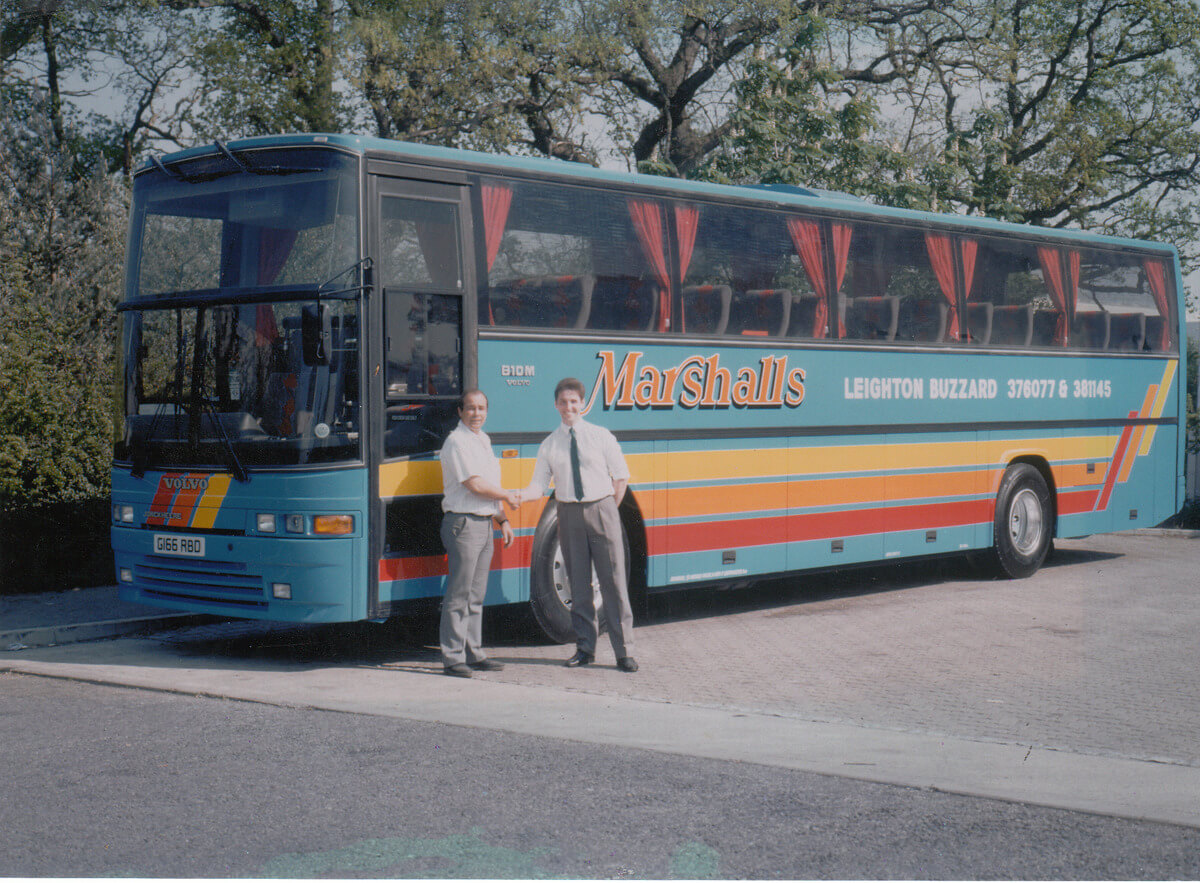
Helping to expand the business further were a series of acquisitions, including of Ronsway Coaches, Newbourne Coaches and Britlink Coaches. That led to a move in the late 1990s to Marshalls’ current premises at Firbank Way.
Fred retired around 2006 due to ill health, but Sheila and Glen’s involvement meant it was in safe hands. Glen had started with the firm aged 16 in the mid-1990s, working on accounts, “a bit of everything” and eventually driving.
Dean came into the business more than a decade later, having worked in other fields. He says: “I sort of fell into it and here I am 15 years later. I never really wanted to be in the family business, I wanted to do my own thing, but it’s funny how life works out.”
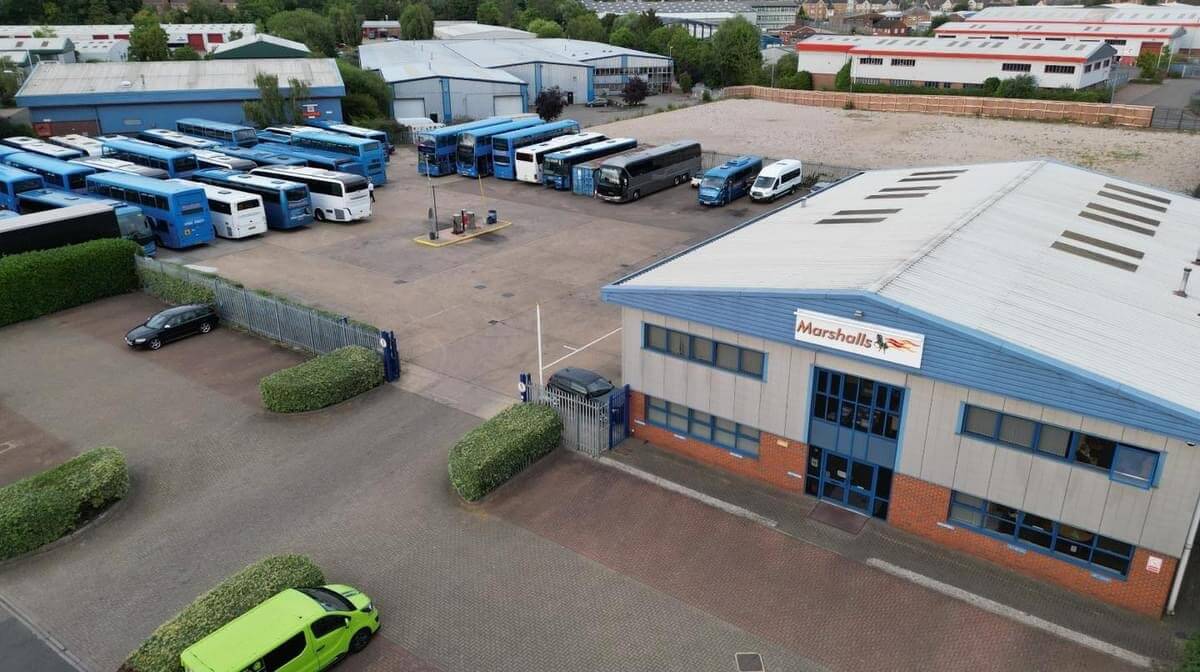
The duo have seen further expansion, with Dean having witnessed the fleet grow from 20-odd when he started to 42 now. The latest additions are those Yutong GT12s, which will be used mainly on tour and rail replacement work.
Secrets of success
It seems there are numerous keys to the longevity of the business. Dean explains: “We’ve got a strong financial foundation within the company. It’s run well and that’s kept us in good stead during the bad times.”
When it comes to that financial astuteness, Glen adds: “We went in a different direction to some and it’s probably kept us a bit more grounded and enabled us to keep an eye on the pennies a little bit more with school stuff because you don’t have to have brand new vehicles, you don’t have to keep up with the Joneses that maybe are doing tour work and other things.”
We’ve got a strong financial foundation within the company. It’s run well – Dean Marshall
However, it’s been spending where needed that has been important, he adds: “What I did is thought, ‘what are we earning more money from?’ It’s the high-capacity vehicles so we just went out and got more of them. So that’s what we tend to do.”
He stresses the need to keep re-investing in new vehicles where necessary to keep costs down in the longer term.
Dean concurs: “You can’t just sit still in this business.”
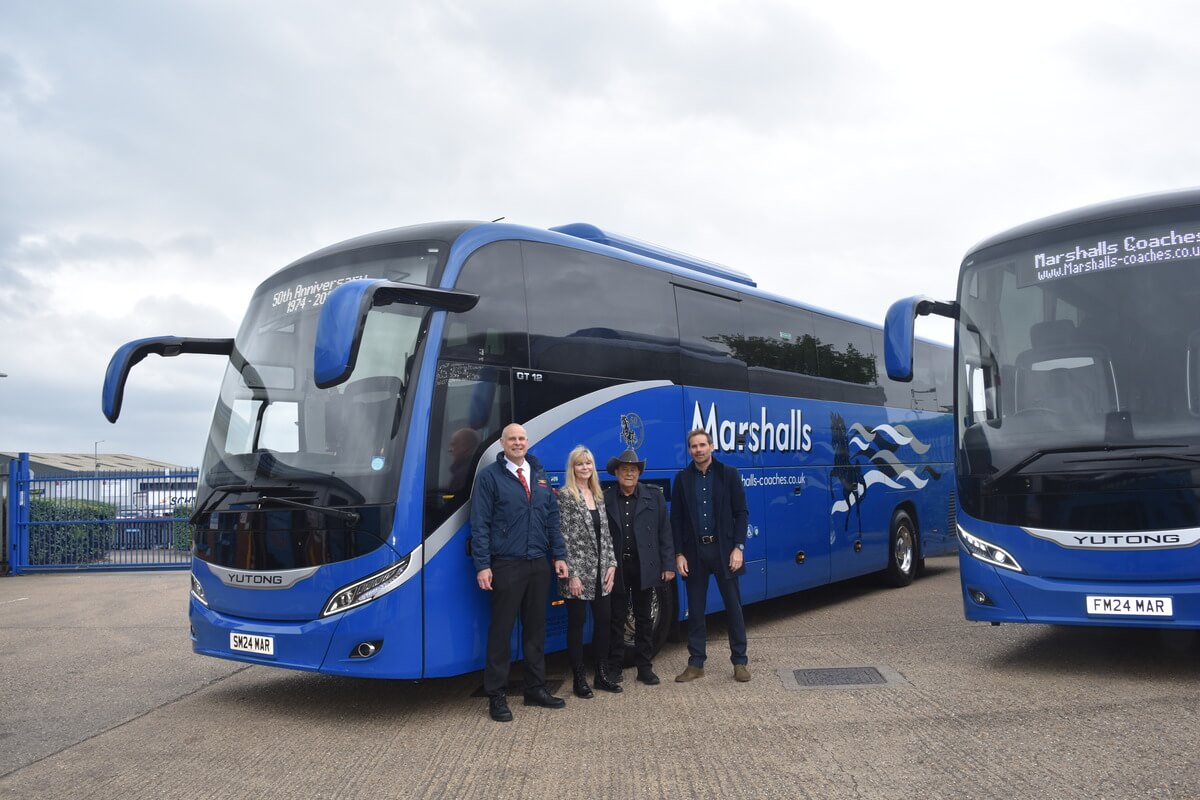
Keeping a close eye on quality is also noted. Dean says: “We’ve always been busy; we’ve been around for 50 years and we’ve got a lot of regular customers who keep coming back to us because we provide a good service.
“We’re not the cheapest coach operator out there but we don’t want to be. It’s good value that we provide and that’s why we’ve been around for so long.”
They agree that having the right staff has also been vital. Driver recruitment issues have been kept at bay due to the business having its own instructor and training programme, although Dean notes: “We could probably do with one or two more in peak season.”
Dean says: “We’ve got the right people and having the right people in in terms of drivers and managers makes a huge difference. We’ve got a settled team.
The obstacles are always getting thrown our way. But we’ve been here 50 years and we get through everything – Glen Marshall
“We’re personable as a business. We’re a family business, we’re not sat in an office not talking to staff. Every member of staff is different and we take time to get to know them.”
However, as mentioned, the half-century has not been reached without a fair few challenges.
Glen says: “There’s always been something every few years. The obstacles are always getting thrown our way.”
Hand, foot and mouth disease; Clean Air Zones; and PSVAR are all mentioned, while one could add the pandemic and the recent cost-of-living crisis, of course. “But we’ve been here 50 years and we get through everything.”
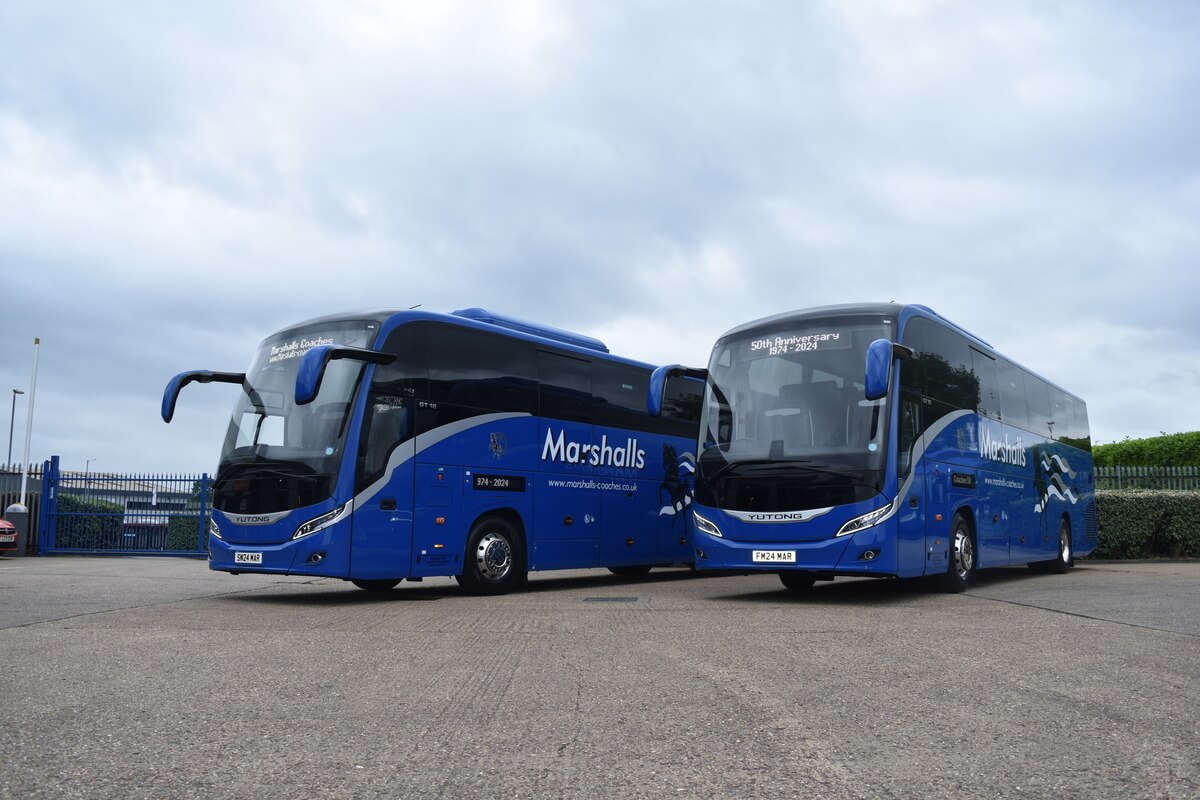
What of the next 50 years? Marshalls is optimistic for the future and Sheila, meanwhile, has no imminent intention to retire.
Although the plan is to remain at a “manageable” size, Dean says: “We’re as busy as we’ve ever been, maybe busier. The work’s there and we’re still in a strong financial position. The future looks good.”
For better, for worse, it’s been a successful 50 years for Marshalls; taking on that first contract has proved to be worth putting the honeymoon on hold for.




















